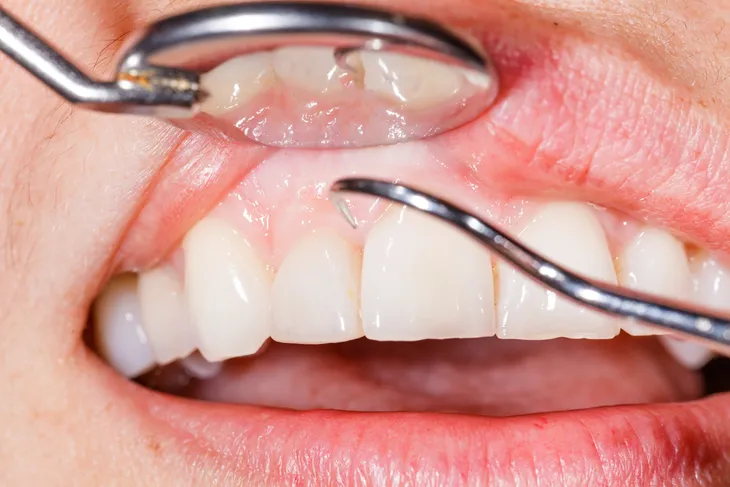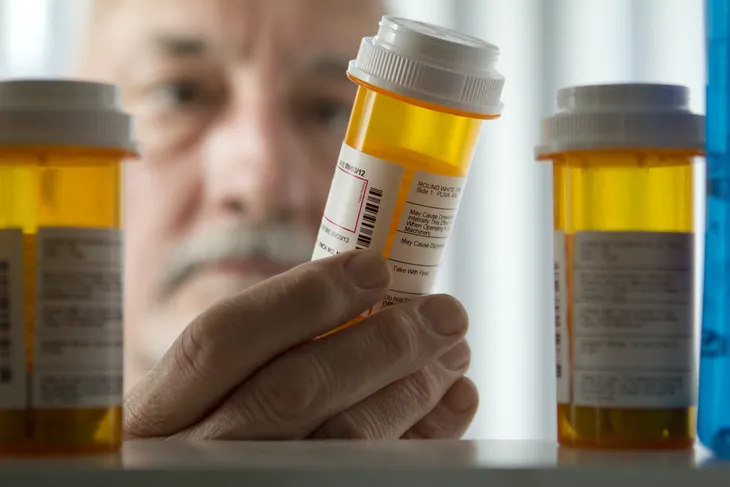Sure, a diet high in greasy, deep fried delights and a life full of financial, work, and personal stresses will certainly take its toll on your ticker. We all know that!
However, doctors are now pointing to other, lesser considered, heart attack culprits. Here are ten surprising cardiovascular cautions that you might not even be aware of…
1. Gum Disease
If you’re an expectant mother suffering from gum disease (also known as periodontal disease), your prenatal caregiver has probably already warned you that it can put your unborn child at risk. However, it seems that gum decay can actually pose a threat to your cardiovascular health as well. A recent study concluded that people with periodontal disease are inherently at a 25 percent greater risk for having a heart attack than those who have healthy gums.
As you read this, researchers huddled in labs all around the world are trying to figure out why. One of the leading early theories is that the elevated bacteria levels associated with gum disease allows infectious agents to migrate deeper into your system. There, they can get all the way to your heart, wreaking havoc on important blood vessels and interfering with your circulatory system function. If you want a healthy heart, be sure you have healthy teeth.
2. Antibacterial Products
As the old saying goes, cleanliness is close to godliness. However, many anti-bacterial or anti-microbial soaps, cleaners, and toothpastes contain Triclosan, a chemical that fosters the production of antibiotic-resistant germs. These germs can increase your risk of cardiovascular disease, while causing more and more damage to your heart and muscle tissues the more you use them.
Researchers stress that you aren’t at risk of suffering a sudden, severe cardiac episode just because you use products with high levels of Triclosan. The problem comes from long-term use, and the danger most often manifests as slower-onset heart disease. Triclosan has also been linked to a long list of other disorders, including muscle function impairments. You’re better off washing your hands with regular bar soap, but if you’re hooked on liquid soap, read the label carefully before buying. Better yet, choose an organic alternative instead of putting yourself and your family at risk.
3. Antibiotics
Doctors are becoming increasingly aware of the risks associated with the overuse of antibiotics, but these medications are still commonly prescribed to treat a wide range of health problems stemming from bacterial infections. However, if you have heart disease, are at risk of developing heart disease or have a family history of cardiovascular problems, you should avoid taking azithromycin, also known as “Z-Pak antibiotics.”
Studies have linked Z-Pak antibiotics with an increased risk of heart disease and heart attack, particularly among individuals with weakened circulatory systems or other significant risk factors. If you have any concerns about azithromycin, talk to your doctor. If you ever get a bacterial infection that requires treatment with prescription medications, request an alternative. There are other drugs that will treat the same spectrum of diseases without putting your heart at risk. However, they may carry other side effects, so be sure to ask about these before beginning your treatment regimen.
4. Seafood
Seafood is often praised by health nuts for its high levels of omega-3 fatty acids, which are known to boost heart function and protect your long-term health. However, new studies show that fish and seafood are often contaminated with high levels of mercury, which is known to boost the levels of cortisol in your bloodstream. Cortisol is a stress hormone, and it is linked to an increased risk of heart attack and heart disease.
The good news is that it’s not necessary to cut fish and seafood out of your diet altogether, and you shouldn’t do that anyway – they have too many benefits to offer. Just steer clear of commercially prepared, mass-produced products including canned tuna, as well as fresh swordfish, king mackerel and shark. If you want to include these foods in your diet, be sure to buy only certified organic products, ideally from a sustainable source.
5. Canned Foods
Canned foods present a double whammy when it comes to heart attack risk. First, they tend to be very high in sodium, as manufacturers load them up with salt to preserve freshness and improve flavor. Second, many cans are lined with a product known as bisphenol A, or BPA for short. While BPA’s use is being phased out, it’s still common enough to warrant some caution while shopping.
BPA is known to disrupt hormone production, and can alter your body’s level of numerous hormones. In young children, it is thought to cause early onset of puberty along with other physical and neurological conditions. In adults, BPA has been linked with arrhythmia, or an unsteady heartbeat. This puts a great deal of stress on your heart, and in extreme circumstances, it can even cause spontaneous cardiac arrest. If you aren’t sure whether or not a particular canned good is BPA free, it’s better to steer clear of it altogether.
6. Lingering Infections
Many people suffer from recurrent sinus infections, or episodes of the flu that seem to just keep coming back over and over again. The flu and other upper respiratory tract infections, including the common cold, can raise your risk of suffering a heart attack or stroke. The reason? These diseases trigger an inflammatory response in your immune system, which in turn puts added strain on your heart.
With this issue, prevention is the best cure. During cold and flu season, actively avoid close contact with people who are sick. Wash your hands frequently with hot water and soap, and avoid touching your eyes, nose, ears and mouth unless your hands are clean. These simple preventative measures will greatly reduce your chances of catching a cold or the flu, and your immune system will experience less strain over the course of your life. Be sure to have any recurrent infection properly diagnosed and treated, but again, steer clear of Z-Pak antibiotics if you have a history of heart problems.
7. Climate Change
If you suffer from asthma or other respiratory tract problems, you already know that air pollution isn’t dong you any favors, to say the least. However, you may not be aware that climate change and air pollution are just as bad for your heart, if not worse. Areas with high levels of air pollution and heat pollution cause your lungs to accumulate high levels of PM2.5 particles. These particles can cause all kinds of health problems, but they are particularly likely to cause blockages in your arteries that increase your risk of heart attacks and strokes.
While it may not sound like the easiest solution, the most effective way to hedge against these risks is to move away from the city. Purchase a home in an outlying area where air pollution isn’t as big a problem, and you’ll soon find yourself breathing easier, both literally and figuratively.
8. Nonstick Chemicals
Nonstick frying pans have been heralded as one of modern cooking’s great innovations, and yes, it is nice not to have to worry about your eggs getting glued to the pan every morning. However, a study from the Archives of Internal Medicine suggests that nonstick pan coatings may lead to higher rates of cardiovascular disease, which in turn greatly increases the risk of suffering a heart attack.
The problem is that nonstick frying pans and baking trays are covered with a chemical known as perfluorooctanoic acid (PFOA). PFOA may be great for cooking, but it’s absolutely terrible for your heart. Health experts recommend sticking to cast iron cookware, or at the very least, products that are 100 percent free of PFOA. Sure, you’ll have to stop your food from sticking the old school way, but that’s a lot better than a trip to the emergency room, or worse.
9. Relationship Stress
Your boss might be the nastiest SOB you’ve ever met, but at least you get to put him or her out of your life altogether when you go home at the end of the day. If you’re stuck in a bad relationship or difficult marriage, getting away is a lot harder, and even if you do manage to carve yourself a lot of “away from home” time, chances are you’re engaging in activities that aren’t very good for your heart anyway.
Studies have shown that there are links between difficult relationships and an increased risk of heart attack, for both men and women. Constant bickering, endless stress, elevated heart rates and related issues all boost your levels of cortisol, the stress hormone linked to heart attacks. Your best bet for recovery may be to end the relationship altogether. It puts having a “broken heart” into a whole new context, doesn’t it?
10. Commuting
Being stuck in traffic is bad for your health, and it’s not just because of the added stress introduced by constant fits of road rage. When you’re in traffic, and particularly when you’re inching along in a traffic jam, you’re inhaling increased amounts of exhaust fumes, and that constant exposure to air pollution increases your risk of a heart attack. If you put up the windows, you’re breathing in recirculated air, and that’s not very good for your lungs over the long haul. What’s more is that studies have shown that if you have a long commute – defined as 40 minutes each way or more – you’re at increased risk of a heart attack no matter what form of transportation you use.
So what are your options? If you can’t cut down on your commute time, maybe it’s possible for you to reduce the number of days per week that you actually go into the office. Find out if it’s possible for you to telecommute; working from home one day a week will automatically reduce your exposure to these noxious fumes by 20 percent.













